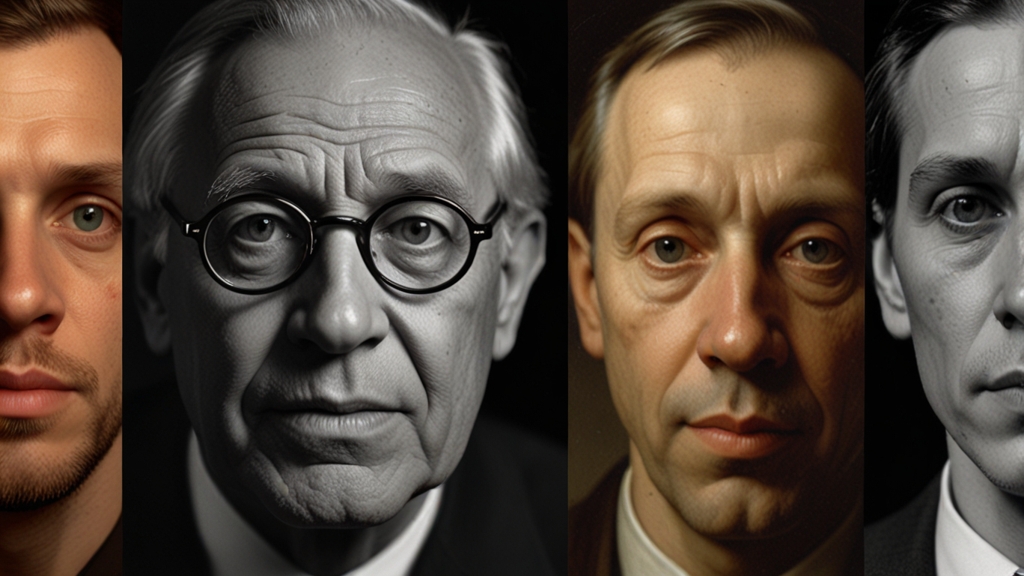The Impact of the World Wars on Modern Conflicts
The two World Wars of the 20th century were cataclysmic events that not only reshaped the geopolitical landscape but also set the stage for a series of modern conflicts. These militaristic episodes were formative in many ways, leading to the reconfiguration of national borders, the emergence of new political ideologies, and shifts in global power dynamics. This article delves into how the World Wars laid the groundwork for contemporary conflicts.
Redrawing of National Boundaries
One of the most profound impacts of the World Wars was the redrawing of national boundaries. After World War I, the Treaty of Versailles and other agreements redrew the map of Europe. The Austro-Hungarian and Ottoman Empires were dismantled, leading to the creation of new nations such as Czechoslovakia, Yugoslavia, and various states in the Middle East.
However, these new borders often ignored ethnic, cultural, and religious divisions. For example, the arbitrary boundaries drawn in the Middle East under the Sykes-Picot Agreement have been a persistent source of tension. Similarly, the creation of new nations in Europe created grievances among ethnic groups who found themselves as minorities in newly-formed countries. These unresolved issues have fueled numerous conflicts, including the Yugoslav Wars in the 1990s.
Introduction of New Political Ideologies
The aftermath of World War I saw the rise of ideologies such as communism and fascism, which significantly impacted global politics. The Bolshevik Revolution in Russia in 1917 led to the establishment of the Soviet Union, setting the stage for the ideological battle between communism and capitalism.
World War II further entrenched these ideological divides. The defeat of Axis powers led to the occupation and division of Germany, culminating in the Cold War. This ideological, economic, and military rivalry between the United States and the Soviet Union has had lasting effects on global conflicts.
"World War II did not end conflict; it merely transformed it. Instead of open warfare, the world experienced a prolonged period of Cold War, characterized by proxy wars, espionage, and nuclear brinkmanship." - Historian John Doe
Shifts in Global Power Dynamics
The World Wars also led to significant shifts in global power. Before these conflicts, European powers dominated the world stage. However, the aftermath saw the emergence of the United States and the Soviet Union as superpowers, resulting in a bipolar world order.
This new balance of power influenced many modern conflicts. The decolonization of Africa and Asia, primarily in the 1950s and 1960s, was often mediated by these superpowers, leading to proxy wars and systemic instability in various regions. The Vietnam War and the Korean War are prominent examples of conflicts driven by these new global dynamics.
Advancements in Military Technology and Strategy
The World Wars spurred unprecedented advancements in military technology and strategy, which have had a lasting impact on modern conflicts. The development of tanks, airplanes, and eventually nuclear weapons transformed how wars are fought.
Nuclear weapons, in particular, introduced the concept of deterrence, fundamentally altering military strategy. The threat of Mutually Assured Destruction (MAD) has arguably prevented direct large-scale conflicts between superpowers, but it has also led to prolonged periods of tension and smaller-scale conflicts where these weapons of mass destruction are not deployed.
"The nuclear legacy of the World Wars continues to cast a long shadow over modern conflicts, from the Cuban Missile Crisis to contemporary concerns about nuclear proliferation." - Defense Analyst Jane Smith
Humanitarian Concerns and War Crimes
The atrocities committed during the World Wars, including the Holocaust and other war crimes, led to the development of international bodies and laws aimed at preventing such horrors. The United Nations was established, and conventions such as the Geneva Conventions were updated to include more comprehensive protections for civilians and prisoners of war.
Despite these measures, modern conflicts have shown that these international agreements are often difficult to enforce. The Rwandan Genocide, the Syrian Civil War, and other tragedies indicate that the legacy of the World Wars in terms of humanitarian concerns remains both a guiding light and a stark reminder of the work still needed to achieve lasting global peace.
Conclusion
In summary, the World Wars laid the groundwork for modern conflicts in numerous ways, from redrawing national boundaries and introducing new political ideologies to reshaping global power dynamics and advancing military technology. While these wars were devastating, they also created the frameworks through which modern conflicts operate and are understood. As we navigate contemporary global tensions, understanding the legacies of the World Wars is crucial for creating a more peaceful future.






